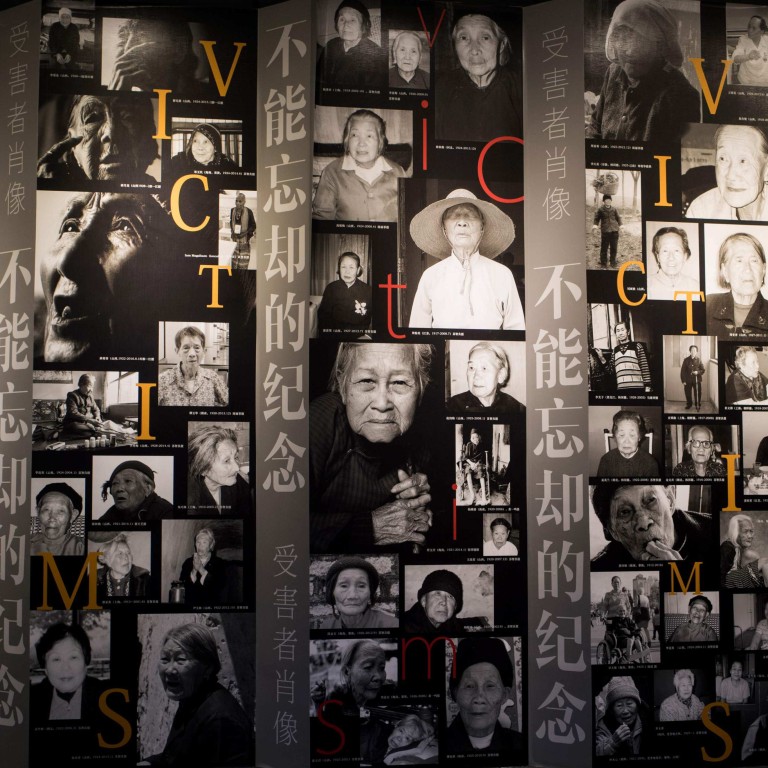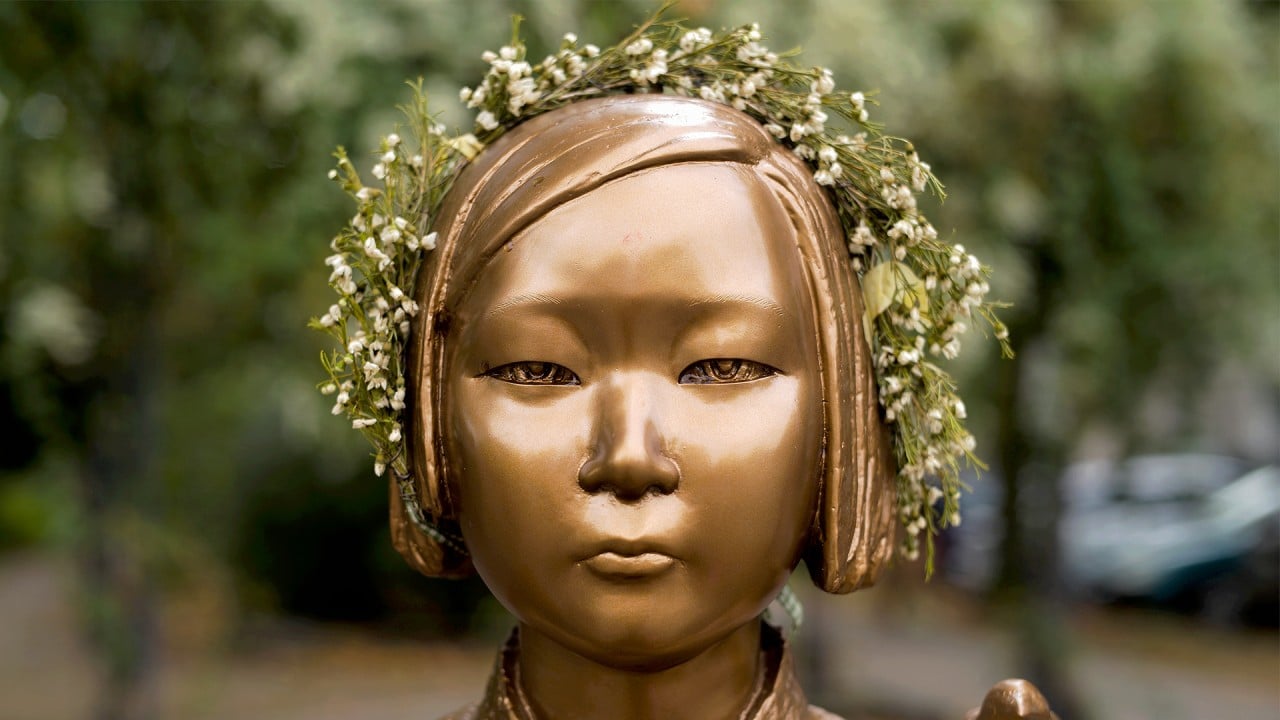
Families of China’s WWII ‘comfort women’ seek Japanese compensation, apologies in landmark lawsuits
- In a first, legal action has been launched in China to hold Tokyo accountable for war crimes, lawyer says
- But the litigation – inspired by a South Korean precedent – could take years, even if court accepts the case, experts say
The 18 families filed the lawsuits in a court in China’s central Shanxi province in mid-April, which Chinese media said was the first legal action of its kind.
The plaintiffs are seeking a formal apology and 2 million yuan (US$276,000) in damages from the Japanese government for each of the victims who were forced into sexual slavery before and during World War II.
Jia Fangyi, who leads a group of lawyers representing the families, said the lawsuits were inspired by a recent precedent in South Korea that ruled in favour of the “comfort women”, prompting them to use similar means under China’s own legal system and domestic laws to seek compensation from Tokyo for wartime crimes.
In the South Korean case, several victims had filed lawsuits in 2016. However, a lower court in Seoul dismissed the case in 2021, citing “sovereign immunity”, a legal principle that allows a state to be shielded from civil lawsuits in a foreign court.
South Korean court dismisses ‘comfort women’ claim against Japan
However, in late 2023, the Seoul High Court reversed the decision and ordered the Japanese government to financially compensate each plaintiff.
The court held that a state is not entitled to immunity for unlawful acts committed against citizens of the country within the territory of that country, outside an armed conflict.
“The South Korean ruling based on its domestic law last year has set a precedent that the court in a country can have jurisdiction if an act [pertaining to law] occurred and the result of the … act took place in that country,” Jia said, adding that the ruling had profound legal implications for other Asian countries.
Harvard professor under fire for ‘negating’ Korean ‘comfort women’
After the plaintiffs’ submissions were made in mid-April, he said it may take a month for the court to decide whether to accept the case, but even so, litigation could stretch over years.
Due to its complex nature, transnational litigation can be a lengthy legal process, which could be further complicated by the difficult relationship by the Chinese and Japanese governments, as well as Chinese courts weighing the possible impact on future compensation cases raised against Tokyo.
“Once the judgments are made, it could lead to similar compensation cases for Japan’s human rights violations piling up in Chinese courts,” Jia said, referring to war crimes conducted by the Japanese army, ranging from sexual slavery and human experimentation to forced labour.
“It will inevitably require the governments of both countries to address these issues, from making judgments, to responses by the Japanese side, to the future enforcement of judgments”, he said, adding that he expected the high court of Shanxi province to consult the Supreme People’s Court in Beijing before handing down its judgments.
According to the Research Centre for Chinese Comfort Women at Shanghai Normal University, around 20,000 Chinese women were forced to work in Japanese wartime brothels, with fewer than 10 documented victims still alive.
Worldwide, the exact numbers of comfort women are still being researched and debated, but the estimates range from tens of thousands to nearly 500,000.
Li Shuangqiao, a granddaughter of Hou Donge, a victim of Japan’s “comfort women” system, is one of the plaintiffs. She told Chinese media that her grandmother never lived to hear the Japanese government apologise for its war crimes.
According to Li, her grandmother said before she passed away: “I will not live to see the day the Japanese apologise. Now it is up to your generation. You must seek justice for the heinous crimes the Japanese committed on me!”
In the end, the Japanese court recognised the historical facts of the Japanese army harming civilian women in China, but did not mandate a public apology or award financial compensation to the victims.
Japan’s reluctance to apologise for wartime sexual slavery has continually strained its relationships with other Asian nations, particularly China and South Korea, where victims still live with wartime trauma.
Legal experts anticipate challenges to the new lawsuits.
Kang Jian, a Beijing-based lawyer who has been involved in several suits brought against the Japanese government since 1995, said that it was not clear whether the Shanxi high court would accept the case, but she was hopeful the plaintiff’s wishes would be fulfilled.
James D. Fry, an associate professor of law at the University of Hong Kong, said that the limited exceptions to the Foreign State Immunity Law may pose a legal challenge to the case, but “creative lawyering skills might be useful in making an exception apply”.
Fry said it would be perfectly understandable for a Chinese court to remain open to the possibility of hearing the case and even interpret any ambiguities in favour of the plaintiffs.
“At the same time, the rule of law and notions of comity and reciprocity ultimately might limit the court’s ability to proceed to the merits of the case and provide adequate remedies,” he said, adding that the exact balance between these considerations is likely to hinge on the judges on the panel and the arguments presented in court.
Fry added that states are usually not immune from violations of tort (wrongful acts) law under international law.
‘Small, positive step forward’ for Japan-South Korea ties at Asean summit
“If the plaintiffs can show that there is continuing violation or an instantaneous act with continuing effects, there is a chance that they can get around the issue of the tort happening a long time ago.”
Jia said that the issue of comfort women remains “a thorn in the side of every Chinese person and a constant source of pain”.
“[The recent lawsuits] are merely part of ongoing efforts in which the Chinese demand a sincere apology and compensation from Japan regarding the comfort women issue, a process that has continued to provoke strong emotions over many years,” he said.


